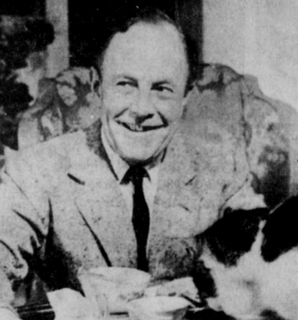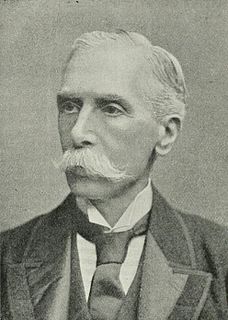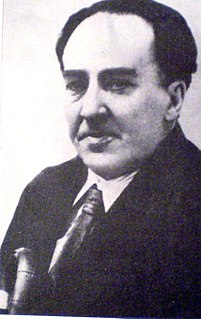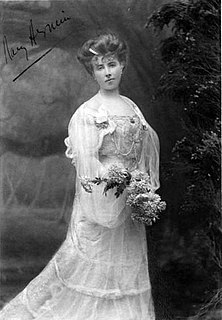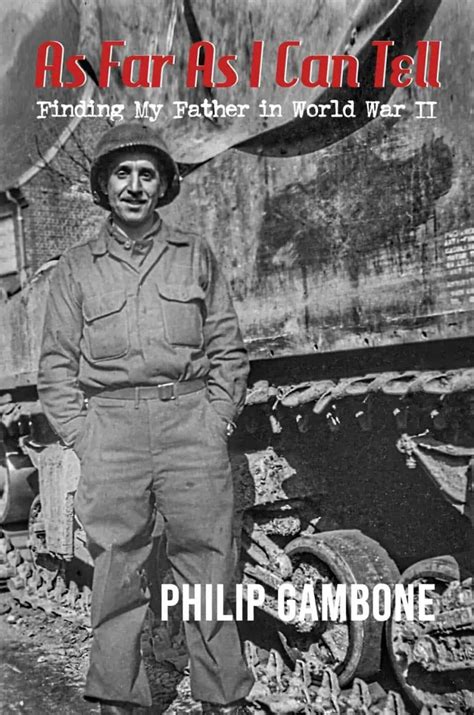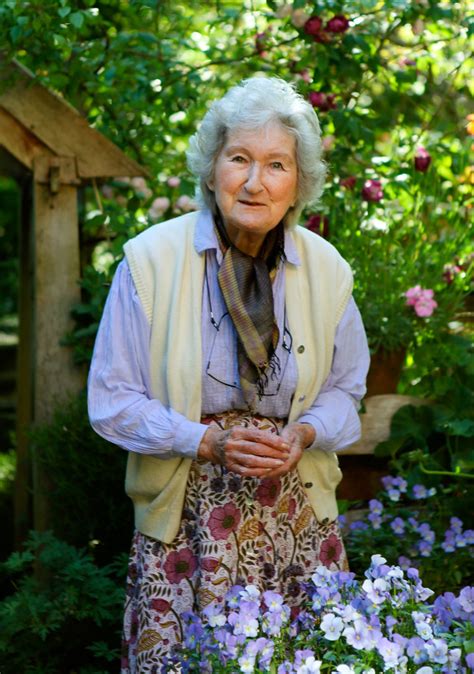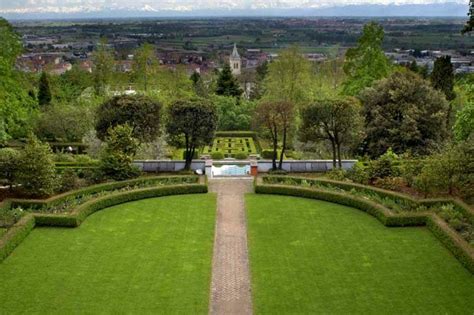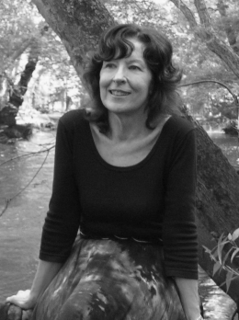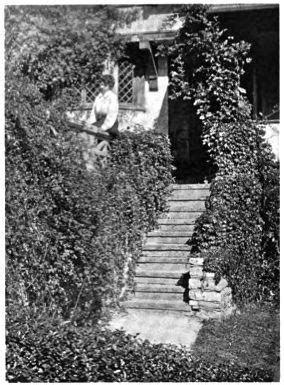Top 1200 Garden Quotes & Sayings - Page 3
Explore popular Garden quotes.
Last updated on April 20, 2025.
If the art of gardening is at last to turn back from her extravagances and rest with her other sisters, it is, above everything, necessary to have clearly before you what you require . . . It is certainly tasteless and inconsistent to desire to encompass the world with a garden-wall, but very practicable and reasonable to make a garden . . . into a characteristic whole to the eye, heart, and nderstanding alike.
A garden without cats, it will be generally agreed, can scarcely deserve to be called a garden at all...much of the magic of the heather beds would vanish if, as we bent over them, there was no chance that we might hear a faint rustle among the blossoms, and find ourselves staring into a pair of sleepy green eyes.
Wherever man exists, he finds the need to redesign, to recreate the world. A more beautiful world, purer, sweeter smelling and more colorful. A garden is probably the spot where the hopes for civilization are best captured. In fact, man defines himself by his garden. My Grandmother standing wordless fifteen minutes Between rows of loganberries, clippers poised in her hand.
Gardeners (or just plain simple writers who write about the garden) always have something they like intensely and in particular, right at the moment you engage them in the reality of the borders they cultivate, the space in the garden they occupy at any moment, they like in particular this, or they like in particular that.
The glory of gardening: hands in the dirt, head in the sun, heart with nature. To nurture a garden is to feed not just on the body, but the soul. Share the botanical bliss of gardeners through the ages, who have cultivated philosophies to apply to their own - and our own - lives: Show me your garden and I shall tell you what you are.
God Almighty first planted a Garden. And indeed it is the purest of human pleasures. It is the greatest refreshment to the spirits of man, without which buildings and palaces are but gross handiworks. And a man shall ever see, that when ages grow to civility and elegancy, men come to build stately sooner than to garden finely, as if gardening were the greater perfection.
In the autumn I gathered all my sorrows and buried them in my garden. And when April returned and spring came to wed the earth, there grew in my garden beautiful flowers unlike all other flowers. And my neighbors came to behold them, and they all said to me, "When autumn comes again, at seeding time, will you not give us of the seeds of these flowers that we may have them in our gardens?"
Indian monks were the first to choose the garden as the proper setting for their lives, which were devoted to the
contemplation of the divine; but with a prophetic eye we may see that the garden will often be dedicated in a
like manner: at a later time Greek philosophers, and monks in early Christian days, will retire into their
gardens for united, yet silent, contemplation.
We are honored to host the greatest players in the NBA in the newly transformed World's Most Famous Arena for the 2015 All-Star Game. Over its 134-year history, Madison Square Garden has been privileged to host some of sports most defining and enduring moments and we are thrilled to add this prestigious event to The Garden's illustrious history.
The wind, one brilliant day, called to my soul with an odor of jasmine. "In return for the odor of my jasmine, I'd like all the odor of your roses." "I have no roses; all the flowers in my garden are dead." "Well then, I'll take the withered petals and the yellow leaves and the waters of the fountain." the wind left. And I wept. And I said to myself: "What have you done with the garden that was entrusted to you?
In some ways, I saw the garden as a metaphor for certain aspects of my life. A leader must also tend his garden; he, too, plants seeds, and then watches, cultivates, and harvests the results. Like the gardener, a leader must take responsibility for what he cultivates; he must mind his work, try to repel enemies, preserve what can be preserved, and eliminate what cannot succeed.
'Established' is a good word, much used in garden books,
'the plant, when established' ...
Oh, become established quickly, quickly, garden!
For I am fugitive, I am very fugitive -
Those that come after me will gather these roses,
And watch, as I do now, the white wisteria
Burst, in the sunshine, from its pale green sheath.
Planned. Planted. Established. Then neglected,
Till at last the loiterer by the gate will wonder
At the old, old cottage, the old wooden cottage,
And say, 'One might build here, the view is glorious;
This must have been a pretty garden once.
Living Things. The garden can be as unlimited a resource as you want it to be. It's an escape from everything if you just want a break. It is something to do with living things, not a static piece that you put there and look at but something that changes every day. You're committed to it. If you don't look after it, it dies on you. And if you do look after it, it will give you rewards - pleasure, and a feeling of achievement. There's a sense of responsibility developed in a garden.
We live in an age of science and of abundance. The care and reverence for books as such, proper to an age when no book was duplicated until someone took the pains to copy it out by hand, is obviously no longer suited to ’the needs of society’, or to the conservation of learning. The weeder is supremely needed if the Garden of the Muses is to persist as a garden.
My father would go shopping, and he was supposed to buy loo roll or something, but he'd always come back with some fish or shellfish. And we've always had fresh vegetables from the garden. He is a massively keen gardener, so he grew all our tomatoes, artichokes, asparagus - whenever he wasn't working, he was in the garden.
I love nature like nothing else. Before I moved to Switzerland, my home was a flat in London with a garden. In those snatched moments away from dance, I did typical weekend things like pruning, planting, and weeding. I planted fruit trees and even had a vegetable garden, but I wasn't around enough, so it was a disaster.
Clyde Phillip Wachsberger's delightful memoir about tending beds of flowers as compensation for a lonely middle age only to find unexpected romance along the way is a sweet reminder that, as he puts it, 'anything can happen in a garden.' In prose that balances candor with perfect courtesy, he charms us with the message that keeping a garden with a beloved companion, this most ephemeral of all the arts, can bring us the most enduring joys and pleasures.
One of the first gardens I did outside the family was for the designer Hattie Carnegie. I was 23 then, and I went to her salon, but could not afford any of her dresses myself, though I loved them. Miss Carnegie suggested I do a garden in exchange for a coat and dress, and so I designed and planted a garden for her.
My neighbor's not even listening to me. He's all excited about some garden hose he bought at Brookstone. He's convinced it was designed by NASA. "Actually, it's got two nozzles, one for the hot and one for the..." Really? Is it long enough to go around both our necks and the chimney so we can tandem jump off of this? That's all I really care about you and your little garden hose.
Now I am in the garden at the back . . . a very preserve of butterflies as I remember it, with a high fence, and a gate . . . where the fruit clusters on the trees, riper and richer than fruit has ever been since, in any other garden, and where my mother gathers some in a basket while I stand by, bolting furtive gooseberries, and trying to look unnerved.
I don't know Hillary's Clinton stance on urban farming. I don't know Donald Trump's stance or Bernie Sanders's for that matter. But the Obamas have been amazing. You know, Michelle Obama, she planted that garden. She keeps bees there at the White House. Little known fact, though, is that Laura Bush also had an organic garden but she never told anyone about it.
This is a nice metaphor, too, about mothers and daughters - that when it came time for me to make my own, I was making a completely different garden than the one that my mom has. They don't look like they came from relatives. Hers is a very productive and pragmatic vegetable garden, and mine is a ridiculous overabundance of useless plants. It doesn't feed anybody, it doesn't serve any purpose.
It is no disparagement to the garden to say it will not fence and weed itself, nor prune its own fruit trees, nor roll and cut its own lawns...It will remain a garden only if someone does all these things to it...If you want to see the difference between [the garden's] contribution and the gardener's, put the commonest weed it grows side by side with his hoes rakes, shears, and a packet of weed killer; you have put beauty, energy, and fecundity beside dead, steril things. Just so, our 'decency and common sense' show grey and deathlike beside the geniality of love.
Imagine your mind as a garden and thoughts as the seeds you plant. Habitual negative, unhealthy, self-critical thoughts produce the weeds and thistles of depression, discontent, and anxiety in the garden of your mind. Luckily, the opposite is also true. Consistently planting positive, healthy, constructive thoughts will yield a crop of beautiful feelings, such as gratitude, love, and joy.
Crouchers move through a garden at a stoop: naming, gasping, horraying, admiring or coveting plants; Gapers saunter, smiling or sighing at what they find, succumbing to an intangible beatitude that takes them for a brief escape into another dimension. Both sorts of gardener are besotted; both get their hands dirty; think and talk gardening; but on the threshold of another's garden, each use a different set of whiskers.
I have often thought that if heaven had given me choice of my position and calling, it should have been on a rich spot of earth, well watered, and near a good market for the productions of the garden. No occupation is so delightful to me as the culture of the earth, and no culture comparable to that of the garden. Such a variety of subjects, some one always coming to perfection, the failure of one thing repaired by the success of another, and instead of one harvest a continued one through the year.
Love, which, in concert with Abstinence, established Faith, and which, along with Patience, builds up Chastity, is like the columns that sustain the four corners of a house. For it was that same Love which planted a glorious garden redolent with precious herbs and noble flowers-roses and lilies-which breathed forth a wondrous fragrance, that garden on which the true Solomon was accustomed to feast his eyes.
See yonder another King's garden, which the King waters with his bloody sweat-Gethsemane, whose bitter herbs are sweeter far to renewed souls than even Eden's luscious fruits. There the mischief of the serpent in the first garden was undone: there the curse was lifted from earth, and borne by the woman's promised seed.
Then all at once in late August's heat, tall leafless stalks crowned with iridescent pink and purple blossoms burst from the purgatory in the earth. This arcane act of nature, though perceived by us as ordinary, is a manifestation of Maya's phantom play, the great immensity expressed in every way. My garden is the universe. I am the universe. I am my garden. All things are the same.
Bad Gardens copy, good gardens create, great gardens transcend. What all great gardens have in common are their ability to pull the sensitive viewer out of him or herself and into the garden, so completely that the separate self-sense disappears entirely, and at least for a brief moment one is ushered into a nondual and timeless awareness. A great garden, in other words, is mystical no matter what its actual content.
Each work of art excludes the world, concentrates attention on itself. For the time it is the only thing worth doing -to do just that; be it a sonnet, a statue, a landscape, an outline head of Caesar, or an oration. Presently we return to the sight of another that globes itself into a whole as did the first, for example, a beautiful garden; and nothing seems worth doing in life but laying out a garden.
Man designs for himself a garden with a hundred kinds of trees, a thousand kinds of flowers, a hundred kinds of fruit and vegetables. Suppose, then, that the gardener of this garden knew no other distinction between edible and inedible, nine-tenths of this garden would be useless to him. He would pull up the most enchanting flowers and hew down the noblest trees and even regard them with a loathing and envious eye. This is what the Steppenwolf does with the thousand flowers of his soul. What does not stand classified as either man or wolf he does not see at all.
Come into the garden, Maud, For the black bat, night, has flown Come into the garden, Maud, I am here at the gate alone: And the woodbine spices are wafted abroad, And the musk of the rose is blown. For a breeze of morning moves, And the planet of Love is on high, Beginning to faint in the light that she loves On a bed of daffodil sky.
The pleasure of eating should be an extensive pleasure, not that of the mere gourmet. People who know the garden in which their vegetables have grown and know that the garden is healthy will remember the beauty of the growing plants, perhaps in the dewy first light of morning when gardens are at their best. Such a memory involves itself with the food and is one of the pleasures of eating. (pg. 326, The Pleasures of Eating)
If a man were to look over the fence on one side of his garden and observe that the neighbor on his left had laid his garden path round a central lawn; and were to look over the fence on the other side of his garden and observe that the neighbor on his right had laid his path down the middle of the lawn, and were then to lay his own garden path diagonally from one corner to the other, that man's soul would be lost. Originality is only to be praised when not prefaced by the look to right and left.
But I have to say this in defense of humankind: In no matter what era in history, including the Garden of Eden, everybody just got here. And, except for the Garden of Eden, there were already all these games going on that could make you act crazy, even if you weren't crazy to begin with. Some of the crazymaking games going on today are love and hate, liberalism and conservatism, automobiles and credit cards, golf, and girls' basketball.





